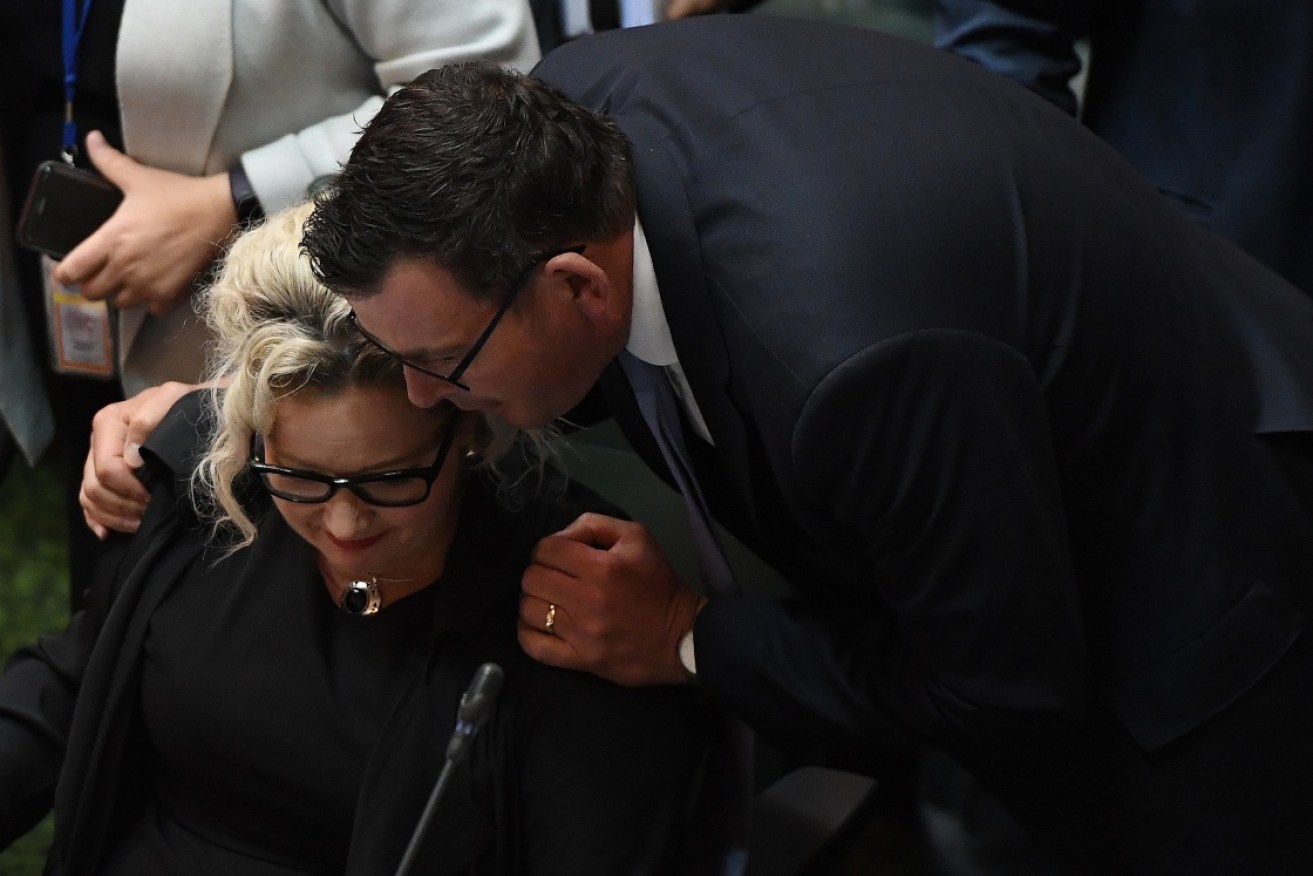Victoria euthanasia decision paves the way for other states


Victorian Premier Daniel Andrews (right) embraces health minister Jill Hennessy after the Victoria assisted dying bill passed. Photo: AAP
The Victorian Parliament’s decision to legalise voluntary euthanasia in Victoria could pave the way for other states and territories to “follow”.
That’s the opinion of euthanasia advocate and writer Nikki Gemmell, who told The New Daily she was “thrilled and surprised” when the government-sponsored bill passed in a conscience vote in Victoria’s lower house on Friday morning.
The Voluntary Assisted Dying Bill was passed with 47 votes ‘for’ to 37 ‘against’, after four days of sitting, 141 amendments and a 26-hour debate in the Victorian Parliament.
The 40-member upper house will debate the controversial bill in a fortnight.
“I really didn’t think it would go through, and I’m really moved so many of the MPs have thought about this so deeply,” Ms Gemmell said.
The Australian author wrote the memoir, After, following her mother’s decision to take her own life, and has since explored the controversial issue of euthanasia.
Ms Gemmell said MPs had put forward private voluntary euthanasia bills many times, but had always been defeated, noting a climate of religious values and vocal advocates.
She said she hoped the Victorian decision would “galvanise” New South Wales politicians, who plan to vote on the controversial topic by the end of this year.
“This is a tipping point, a turning point,” she said of Friday’s decision.
Even those who denounced the Victorian decision, recognised its significance to all Australians.
Former Labor prime minister Paul Keating described the bill as “deeply regressive” in a statement to Fairfax.
“The passage of the Voluntary Assisted Dying Bill through the Victorian lower house is truly a sad moment for the whole country,” Mr Keating said.
“One can only hope that the members of the Victorian upper house have the understanding and the confidence to beat this deeply regressive legislation.”
The bill states terminally-ill people with less than 12 months to live and suffering insurmountable pain will be able to request lethal medication.
Among the legislation’s safeguards are that patients will be required to make three requests and see specially trained doctors.
If passed, the legislation would not come into effect before 2019, providing 18 months for implementation.
Voluntary assisted dying advocacy organisation Dying with Dignity president Lesley Vek called the legislation the “tightest in the world” and agreed the Victorian decision would serve as a positive example for other states and territories.
“It think it will be a positive example,” Ms Vek said.
“What has happened in Victoria will have an effect on what happens in New South Wales and if, let’s say, it passes in the (Victorian) upper house, the process in Victoria, the 10-month parliamentary inquiry, the advisory panel, and a body of work over two and a half years … NSW parliamentarians can refer to that and learn from that.”








